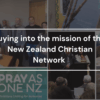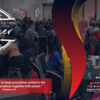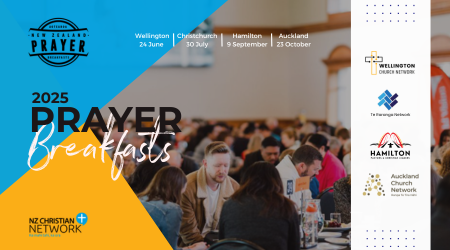
by Dr Stuart Lange | 30 May , 2025 | Articles, Christianity in New Zealand, Featured
Christians meeting together for prayer is not a new thing. It often happened in the New Testament church (e.g. Acts 1:14, 2:1-4, 2:42, 4:24-31). Inter-denominational prayer gatherings are held in many New Zealand towns and cities, at the initiative of various groups, and there is a long history of such events in most places. That has always been good, because heartfelt prayer always matters (Ephes. 6:18, Col. 4:2, 1 Thess. 17).
An encouraging development in recent years has been city-wide Prayer Breakfasts in various New Zealand cities, as a result of a partnership between the New Zealand Christian Network and groups of Christian leaders in different cities, generously supported by a number of sponsoring Christian organisations. There is a special blessing when believers come together in unity from all sorts of different churches and cultures, and pray and fellowship together.
The first of the NZCN-associated Prayer Breakfasts was the Auckland Prayer Breakfast, in 2016. Its venue is an upstairs lounge at Eden Park. In 2024, 670 people attended. Rev Dr Richard Waugh tells the story of the APB here. Pastor Dale Campbell (Auckland Church Network) comments, ‘There really is nothing quite like the prayer breakfast to show the visible unity of the Church in Auckland’. This year’s Auckland Prayer Breakfast will be held on 23 October. Book tickets.
The Hamilton Prayer Breakfast, with Rachel Afeaki-Taumoepeau as MC, began in 2019. It initially met at Hamilton City Gardens, and more recently at the Claudelands Events Centre. Last year, 460 people came. Rachel writes: ‘As we approach our 6th Annual Hamilton City Prayer breakfast – we give all glory for God’s faithfulness. The 2025 theme of unity comes from Ephesians 4:3 – “Make every effort to keep yourselves united in the Spirit, binding yourselves together with peace.” Let’s start with His Church, and may this unity overflow to pour out over our City and throughout our communities.’ This year’s Hamilton Prayer Breakfast will be on 9 September. Book tickets here.
Coming up very soon, on 24 June, will be the inaugural Wellington Prayer Breakfast. The Wellington Prayer Breakfast will be held at the Sky Stadium. Pastor Phil Coates is the Wellington coordinator. He writes: ‘For many years, Wellington City hosted Capital Prayer Breakfasts, drawing together Church, business and community leaders to pray for our city and nation. These breakfasts ceased just prior to Covid, but we are excited to be gathering together again, this time in collaboration with NZCN and Prayer Breakfasts being held in other cities across the nation. With the emergence of the new Wellington Church Network, we are believing that annual Prayer Breakfasts will be wonderful opportunities to seek the Lord’s favour and blessing on our city.’ Note that tickets for the Wellington Prayer Breakfast close on 17 June. Book tickets here.
And in Christchurch, on 30 July, there will be the inaugural Christchurch Prayer Breakfast, which will be held in the Christchurch Town Hall. This complements some previous events, including those organised by Te Raranga. The Christchurch organising committee coordinator is Rev Dr Clint Ussher. Book tickets here.
‘Do you love your city? Do you love prayer? Do you love God? Do you love breakfast? Then it would great if you can be part of your local Prayer Breakfast’. – Sanjai Kandregula (Auckland Prayer Breakfast Committee)
As with any such event there are considerable costs involved. Currently ticket prices are 50% of the actual cost per person, with sponsorships and donations covering the remaining 50%. We are very grateful to this year’s sponsors: lead sponsors Barnabas Aid and Christian Blind Mission (cbm), along with Bible Society, Alpha, Laidlaw College, Christian Savings, World Vision, New World Morrinsville, Family Life, Parry Field Lawyers, and Vision Complete Earthworks.
We still have a few sponsorship opportunities, get in touch with Esther to find out more. In addition, anyone may make a donation to help further the reach of our Prayer Breakfasts (such donations are eligible for a tax rebate at the end of the financial year).
In many other cities and towns, there are other current united prayer events. We are always pleased to hear reports and updates about these.
Where local leaders feel it could be helpful, New Zealand Christian Network is always willing to explore entering into a partnership to assist the running of further Prayer Breakfasts, anywhere in New Zealand. Please contact us if you want to discuss that possibility by replying to this email.
Also, we invite Christian believers anywhere in New Zealand to join our weekly national online prayer meeting, Pray As One NZ.
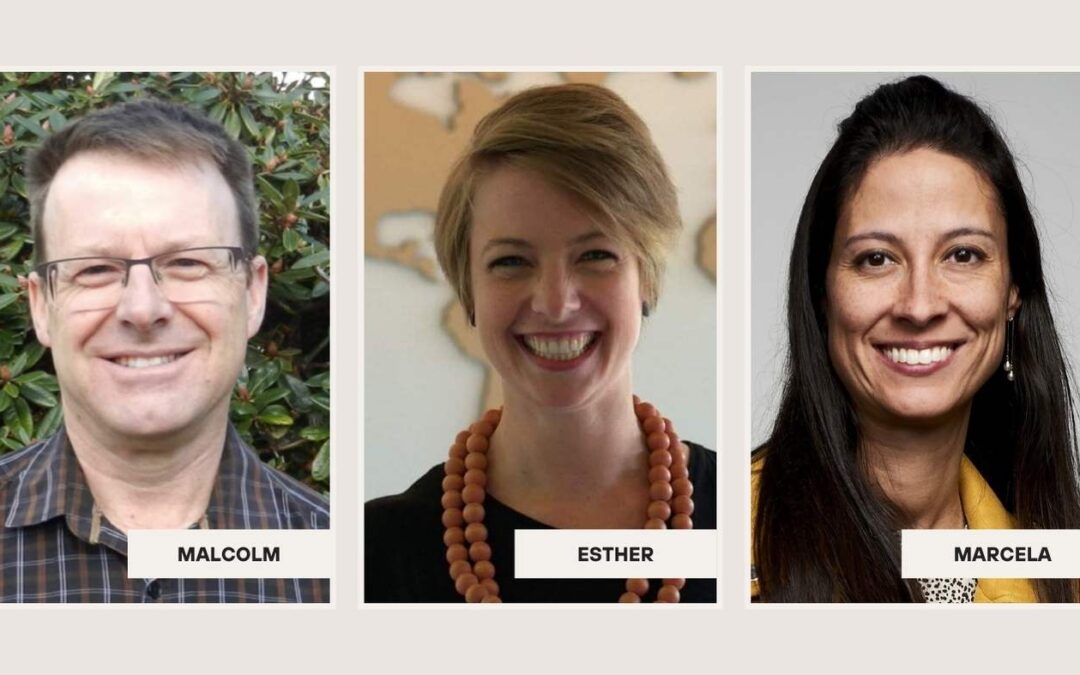
by Dr Stuart Lange | 15 Dec , 2023 | Articles, Featured
We are very pleased to welcome some new part-time staff members to our NZCN team.
Rev Dr Malcolm Falloon
Associate National Director
Malcolm is an Anglican minister with over thirty years’ experience in pastoral ministry.
He currently pastors Church of the Ascension in Auckland, which is affiliated with the Church of Confessing Anglicans. Through his work with the Latimer Fellowship (an evangelical society within the Anglican Church), he has experience in connecting leaders together for mutual encouragement and support in the Gospel.
Malcolm is a keen student of New Zealand mission history, and has a PhD specialising in the Māori conversion to Christianity. He is married to Sue and they have three adult children.
Esther Tredoux
Communications and Content Coordinator
Esther, wife to Albert and mum to Noah, is from South Africa. She and her family immigrated to Hamilton, New Zealand in April 2023.
Esther has experience in marketing, social media, and public relations. She has worked for various Christian non-profit organisations (including Mission Aviation Fellowship South Africa), as well as companies specialising in Software as a Service (apps) and in Public Relations.
Marcela Ferreira
Administrative and Financial Manager
Marcela comes from a Christian upbringing, finding joy in reading and studying the Bible since her early years. She comes from a small Presbyterian church in Brazil, where she joyfully volunteered across various ministries.
Professionally, Marcela delved into finance, banking, and entrepreneurship.
In 2018, her family moved to New Zealand, where she pursued and obtained a Master’s in Finance, deepening her expertise in the field. She lives in Auckland with her husband, Marcelo, and their two daughters, Laura and Sara.
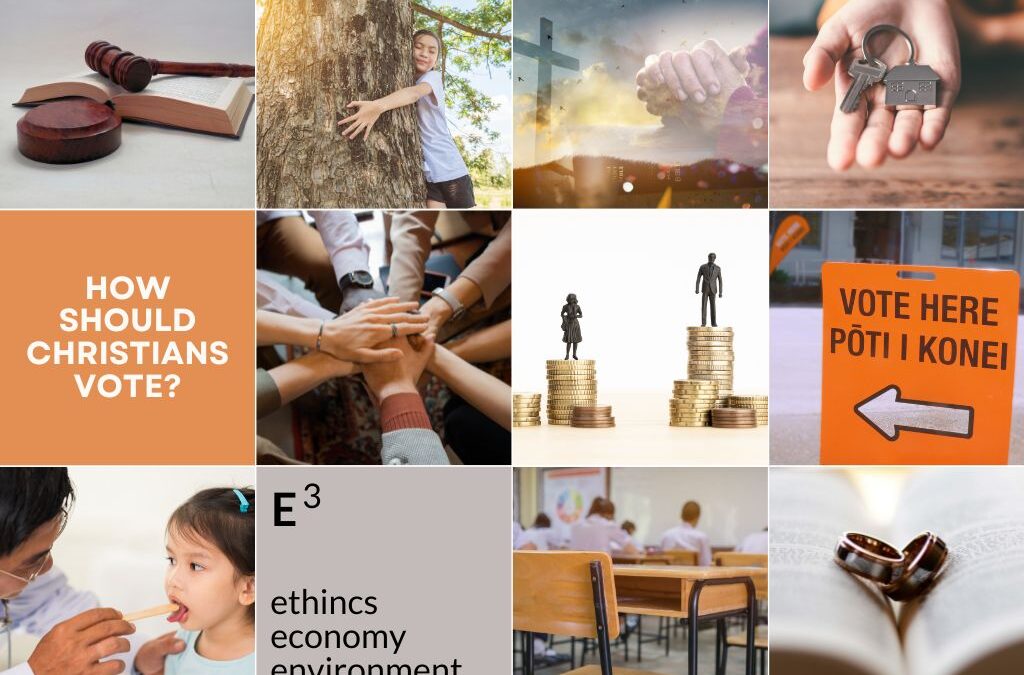
by Dr Stuart Lange | 6 Oct , 2023 | Articles, Christianity in New Zealand, Featured
It is not for us to say who or what anyone should vote for. That is 100% each voter’s own call. We can say, though, that it is really important to vote, and that in a democracy voting is both our right and our responsibility.
No doubt all political candidates and parties want to serve society and to help make New Zealand a better place. But the challenge for us as voters is that politicians greatly vary in their beliefs, ideologies, values, priorities, and policies (and also their obsessions and blind spots). We need to be as discerning as we possibly can about what politicians and parties really stand for, and what they may go along with.
Three crucial areas to consider – in no particular order – are ethics, the economy, and the environment. These categories don’t cover everything, but they should all be important for Christian voters…
- Ethics: this applies to a very wide range of issues including laws and policies in relation to marriage, sexuality, gender, sex education, abortion, euthanasia, drugs, freedoms of belief and expression, fair wages, a just tax system, and inter-cultural respect and harmony.
- The economy: sound economic management is always helpful, especially if it enables good public services (e.g. in health and education), lowers the cost of living, facilitates affordable housing for all, and helps everyone in society on an equitable basis.
- The environment: taking better care of God’s creation is God-honouring, and the deepening climate change makes it increasingly urgent.
The problem for voters is that no political party ticks all these boxes. All parties have strengths in some areas, but deficiencies in others.
In recent years, with the support of a majority of MPs from across both left and right, Parliament has passed a flood of radical social legislation, some of it deeply wrong and abhorrent. At the same time, little has been done to address the widening socio-economic disparities in New Zealand, or the worsening climate crisis – and in neither area is it clear how much real action is now on offer.
We urge Christian people to vote both carefully and prayerfully, seeking to discern what policies align best with biblical truth and righteousness, and which politicians and parties may best serve this country’s overall wellbeing.
Readers may find the following resources helpful…
Rasik Ranchord:
Family First:
Dave Mann:
Finally, do be in prayer that God may bring about some good outcomes in this election, and that among those gaining a place in the next Parliament may be many faithful and capable Christians.
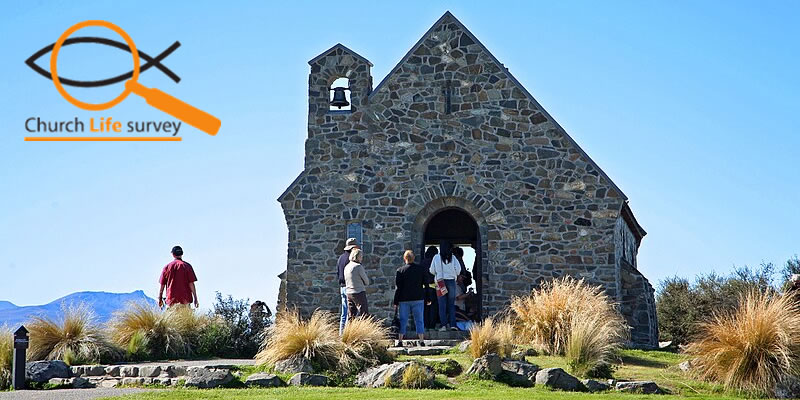
by Ben Mai | 5 May , 2023 | Articles, Featured
Do you know that in New Zealand we have a nationwide survey of church attenders? The Church Life Survey NZ (CLS) takes place every 5 years, in Census years.
Has your church significantly changed since the pandemic? The CLS is an opportunity to find out who is part of your church and what their demographic profile is.
The health of our people is important – perhaps more than ever. The CLS provides a snapshot of the spiritual health of your church.
Leaders who grow are leaders who seek out feedback on their leadership. The CLS provides feedback on your leadership and the future direction of your church.
Benchmarking your church against others is a healthy practice. The CLS enables you to benchmark your results against others in your group or denomination, and against national averages
You’re contributing to a national picture of NZ church life. The CLS provides meaningful information about the size & structure of the church in our nation. It’s unique, we don’t have other info like it.
The idea is to maximise participation within your church. The survey takes attenders 10-15 minutes to complete via smartphone, laptop or tablet, or pen & paper. A handy feature is that results are available in real time to church leaders. Both standard reports and you can build your own reports.
I believe the NZ Church would benefit from knowing more about ourselves, our church life, our faith life, our community interaction, and our opinions on the future of the Church. Good data helps inform wise decisions.
Already, many denominations, movements and churches from across NZ have signed up. It is simple to do so and at $60 for one church, it is very well priced for what you will receive.
Can I strongly encourage your church or denomination or movement to participate in the 2023 Church Life Survey NZ?
Register your group / denomination / movement or church at any time via the website. If you are registering as a group, do that first before you register churches within the group.
We very much encourage your local church to take part in the Church Life Survey, which happens every five years. Through this, leaderships of participating churches will receive excellent up-to-date data about their own churches. This includes your church’s demographics, and your own people’s involvement, beliefs, values, and attitudes. The aggregated (and anonymous) survey results also contribute to a much better understanding of the New Zealand church scene, across different generations, denominations, independent churches, regions and cities. Participating churches will easily be able to see how their own church fits into the wider picture.

by Dr Stuart Lange | 4 Apr , 2023 | Articles, Christianity and Social & Moral Issues, Featured
Until the last week or so, hardly anyone in New Zealand had heard of Kellie-Jay Keen-Minshull (Posie Parker). It’s a bit hard to be certain of the full range of her views, and how controversial they may or may not be. Clearly, though, her views are seen by some people as offensive.
In a free and open society, however, being offensive in the eyes of those who hold different views is not sufficient grounds for having your freedoms of opinion and expression denied.
It appears that, speaking as a woman, and from a secular feminist position, Mrs Keen-Minshull believes that a woman is an adult human female, she objects to trans women trying to redefine what a woman is, and she argues that many women do not feel safe with trans women in women’s own spaces.
If those are in fact her primary premises, they are not unreasonable. Indeed, they have long-established roots in human experience, culture, and biological science. Are such views truly so appallingly offensive and harmful that they must be declared inadmissible and unspeakable? If so, what can anyone safely think or say about anything?
In a free society, we all need to robustly defend the right of everyone else to express views we might deeply disagree with. That is part of the social contract that is basic to living in a democratic and open society.
It comes across as intolerant and potentially oppressive when people label as “hateful” any viewpoint that questions their own view of life, and then seek to silence it by law, slurs, and intimidation – and last week by an angry, screaming, violent mob, with limited police presence, and with apparent support from some media and politicians.
Tolerance needs to work both ways.
In a free, diverse, and genuinely inclusive society, we must allow everyone to speak, question, and debate. If that right is not robustly defended, our society will sooner or later end up a very strange and scary place.
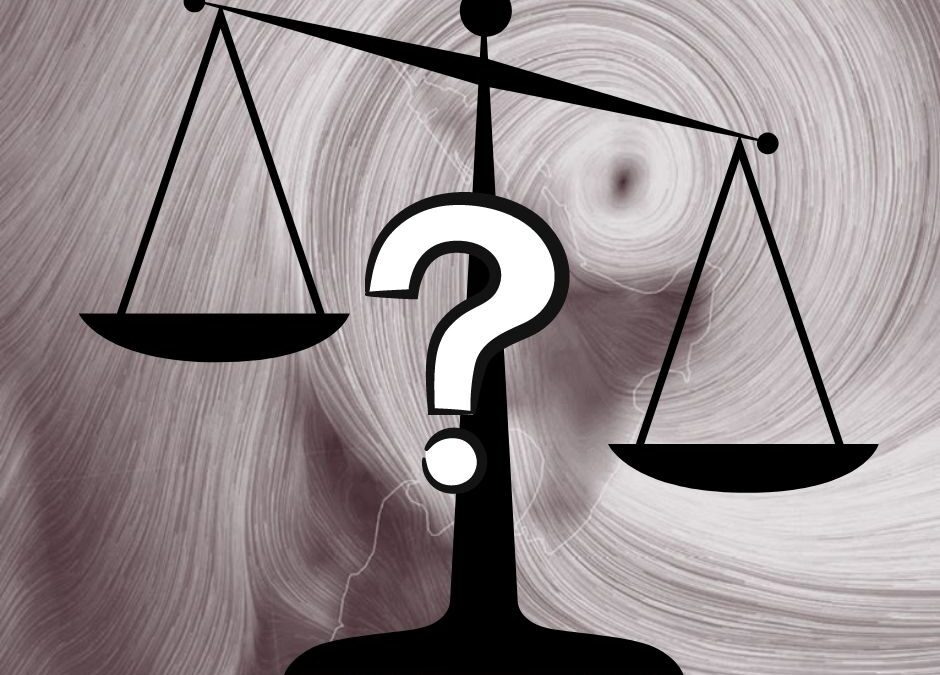
by Dr Stuart Lange | 3 Mar , 2023 | About Christianity, Articles, Featured
Some Christians have wondered so. There are some grounds for that: God hates evil, God is on record (in biblical times) as punishing people and nations, there is much about New Zealand society that must be ethically and spiritually offensive to God, God has every right to punish, and one way or another we all deserve God’s chastening.
Most Christians would hesitate, though, to name specific natural disasters as God’s punishment. Can we be certain we definitely know God’s mind in this?
Biblically, natural disasters and human suffering in general are part of our fallen, sin-marred, groaning world (Romans 8:22). Human sinfulness has made a mess of God’s good creation, and continues to do so. Much suffering is also linked to ongoing human wrongdoing (our own, or that of others). And suffering happens to both believers and unbelievers.
Christians look forward to God’s justice one day being fully established, on the Day of Judgement, and in the new heaven and earth. In the meantime, it appears God in his mercy stays his hand, and all over the world much individual and societal sin remains unpunished for now.
Unquestionably, human suffering can provoke people to review their lives, and sometimes to reach out to God. This remains a great time for Christians to be praying for others around us, and for our society, and to be reaching out with Jesus’ love and grace.







